Tranalysis
Xinhua Agency, Nairobi, June 11feature| China and Africa jointly draw blueprint for African agricultural development
Xinhua Agency reporter
In recent years, China-Africa agricultural cooperation has continued to deepen under the frameworks of the Forum on China-Africa Cooperation and the Belt and Road Initiative, and achieved fruitful results. From fields to e-commerce markets, China has helped African countries improve agricultural productivity and promote the agricultural modernization process of the African continent through technical assistance, industrial chain construction and market expansion.
In the future, China will continue to implement the "China Plan to Assist Africa's Agricultural Modernization", explore new cooperation paths with Africa, comprehensively promote agricultural cooperation, and jointly draw a blueprint for Africa's agricultural development with the African people.
From "having enough food" to "getting rich"
At the Nigeria Agricultural Technology Demonstration Center on the outskirts of Abuja, the capital of Nigeria, Chinese agricultural technology experts are carefully inspecting newly harvested rice in a rice processing workshop.
After years of hard work, experts from the Chinese-funded enterprise Green Agriculture West Africa Co., Ltd. have selected excellent rice varieties based on local natural conditions, with an average yield of more than 20% higher than local ordinary varieties. This rice seed has been approved by the agricultural department of Nigeria and has been extended to two thirds of the country's states.
Raval Musa, a farmer in Jigawa State in northern Nigeria, has been planting this rice for several years and has experienced firsthand the advantages of this rice seed with high yield, strong adaptability, disease resistance and drought resistance. "Through cooperation with China, Nigeria will surely achieve food self-sufficiency in the future." Musa said.
Green Agriculture West Africa Limited is one of the largest seed companies in Nigeria. It participates in the Nigerian government seed supply project and has supplied more than 30,000 tons of seeds to more than 30 states across the country, helping the country's rice production increase by more than 2 million tons.
Over the past ten years, China has built 24 agricultural technology demonstration centers in Africa, promoted more than 300 advanced agricultural technologies, driven an average increase in local crop yields by 30% to 60%, benefiting more than 1 million small African farmers.
Chinese agricultural experts have improved the yield and quality of important crops such as rice, cassava, and soybeans by teaching techniques and improving varieties, and introduced a variety of new varieties such as fruits, vegetables, and beans to enrich the "vegetable basket" of African people and promote local agriculture. Development in new fields.
Since its introduction abroad, fungus and grass technology has spread to more than 100 countries, and demonstration bases have been established in 17 countries. In Africa, fungus grass has become the "grass for wealth" and "grass for happiness" that help people pursue a better life.
Recos-Camo, former Minister of Agriculture and Rural Development of the Central African Republic, spoke highly of the practicality of fungus technology and believed that it contributed a lot to local job creation and income increase.
In Kigali, the capital of Rwanda, 42-year-old Leonidas Muhimimimana runs the largest edible fungi cultivation workshop in the region. He once went to China to participate in fungus technology training and established this workshop after returning to China.
"Rwandans did not eat mushrooms before, but now fungi have become a popular local food." Muhimimana plans to turn fresh mushrooms into mushroom products and sell them to overseas markets to drive community residents to become rich together.
At present, more than 4000 farmers in Rwanda use fungi and grass technology to cultivate edible fungi, and this industry has created more than 30,000 jobs.
"Chinese factories increase the added value of their products"
In June, Cote d'Ivoire entered the rubber tapping season. There was a long queue of trucks in front of the rubber processing plant invested by the Chinese company Meilan Group on the outskirts of the southern town of Dabu. The newly harvested cup rubber on the truck would be processed into standard rubber here, and then shipped to China for processing into rubber products.
Cote d'Ivoire has excellent natural conditions and is Africa's largest natural rubber producer. In the past, due to lack of processing capacity, rubber farmers could only export low value-added raw materials, resulting in meager income. Jobue Rowan, chairman of a local rubber cooperative, said: "Chinese factories have helped us open up sales, and the average monthly output of our cooperative has increased from 1000 tons to 2000 tons."
Bru Bonaventil, resource supervisor of the Agricultural Research and Consulting Industry Association of Cote d'Ivoire, said: "Chinese factories have realized the local processing of Cote d'Ivoire rubber and increased the added value of our products. We want to say thank you to China!"
Cassava is an important food crop in Africa. Due to backward varieties and technology, Africa's cassava unit yield is low and the level of product processing is limited.
The Chinese Academy of Tropical Agricultural Sciences has cooperated with major cassava producing countries in Africa to help increase cassava production and product types. At the cassava industry development seminar of the Chinese Academy of Tropical Agricultural Sciences, when agricultural officials and technicians from South Africa, Nigeria, Uganda and Congo (Brazzaville) learned that cassava starch can also be processed into biscuits, yogurt, cakes, noodles and other products, I couldn't help but exclaim: "I didn't expect cassava to be so widely used!"
In Nigeria, Green Agriculture West Africa Limited and the Institute of Tropical Crop Variety Resources of the Chinese Academy of Tropical Agricultural Sciences jointly established the Abuja Modern Agriculture Demonstration Base, built a small cassava whole flour processing production line and a 10-acre supporting cassava high-yield demonstration base, and conducted local cassava planting technology and processing training. Wang Jun, general manager of Green Agriculture West Africa Co., Ltd., said that cassava starch processing will be explored based on local market demand and extended downstream of the cassava industry chain.
"Small villages" connect to "big markets"
Dewdrops hang on newly harvested rose petals at Tambuzi Flower Farm in Kenya in the early morning. These flowers will appear on the shelves of Gaoqiao Market in Changsha, China, thousands of miles away within 48 hours.
According to Clement Tulezi, CEO of the Kenya Flower Association, Kenyan flowers have long been mainly exported to European countries. In November 2021, the Chinese government announced the establishment of a "green channel" for African agricultural products to be exported to China, shortening inspection and quarantine time, and expanding tariff exemptions have opened up sales for Kenyan flowers and specialty agricultural products such as avocado, citrus, and pineapples from African countries.
Hunan Xiyue International Trading Co., Ltd. has cooperation with 7 flower farms in Kenya, selling an average of 100,000 flowers per month. The supply covers 14 large and medium-sized cities in China and is sold to Russia, Australia and other countries.
Huang Zinan, head of the company, said that in the future, Chinese companies can help Kenyan partners develop derivative products such as essential oils and toilet water to increase the added value and market competitiveness of Kenyan flowers.
As of June 2023, 16 agricultural products from 11 African countries have received access to China under the "Green Channel", and more and more African specialty products are selling well in the Chinese market. Driven by a series of trade promotion measures, Africa's agricultural exports to China have grown rapidly, and China has become Africa's second largest export destination for agricultural products. In addition, platforms such as the China International Import Expo, China-Africa Economic and Trade Expo, and the African Good Goods Online Shopping Festival have also become important display windows for African agricultural products, enhancing their international popularity.
"Imagine if a small coffee-growing village in Africa could be directly connected to the global market, then the village would be expected to be lifted out of poverty." Laila Barnaba Lokosan, senior technical adviser to the African Union Commission, said with longing.




